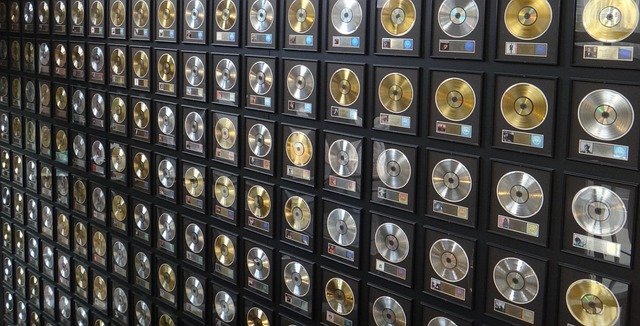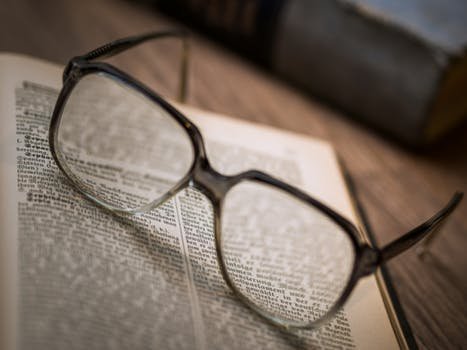Why Are We Still Banning Books in 2017

Did you know we’re still banning books?
When I was in high school, one of my favorite weeks as a reader was Banned Books Week. This annual event celebrates our freedom to read and highlights the value of open access to information, which often serves as a student’s introduction to the idea of banning books entirely. During this week, libraries encourage their readers to find books from the Top Ten Most Challenged Books list that is published annually by the American Library Association (ALA) Office for Intellectual Freedom. Some of my favorite book series, including The Hunger Games and Harry Potter, have been challenged for their content.
While Banned Books Week encourages our first amendment right, there is some discrepancy between what they advocate against and what actually happens.
Often, what they fail to mention during this week is that books listed are not truly banned from the libraries. There is a difference between the words ‘challenged’ and ‘banned.’ A challenged book has been called for removal or restriction based on the objections of a person or group. When a book is banned, the materials are removed from the libraries or curriculum. However, these removals rarely go unchallenged and the books do eventually find their way back into libraries.
Honestly, the attempt to censor information that makes us uncomfortable is not new. Before the printing press’ creation, handwritten books only existed in a few copies and the destruction of those books through burning often guaranteed that no one would read them. It was the easiest way to prevent the spread of ideas. Now, it’s much harder to prevent information from reaching the masses.
The Legal Standard for Banning Books
The First Amendment
Freedom of speech is a two-part argument for the topic of banning books.
First, the amendment states that no law can be made by Congress that abridges the freedom of speech. While that prevents government interference, private schools and libraries operate on a broader scale of possibility. Private companies have similar discretion to choose what they will and won’t accept for publishing.
Second, does reading constitute our freedom of speech? The answer, established by several Supreme Court cases, is yes. Our right to receive ideas through books and movies is a necessity. Without access to this information, our rights of speech and press and political freedom have been infringed.
The Library’s Right
While we are guaranteed access to information, libraries are not required to own particular works that do not uphold their standards. Libraries also have the freedom to decline requests to obtain a particular work, rather than banning or censoring what they’ve already collected. In terms of banning books, a public library cannot ban books based on their content if the challenge intends to suppress the ideas presented in the works.
Also, libraries are places dedicated to the pursuit of knowledge and enjoyment of written works. Libraries are public buildings that invite people from all walks of life to peruse their collections. The use of a library is voluntary, as is the content that we access while using that public service. We use the library and its resources for individual purposes. Because of this, public libraries are entitled to greater protection when it comes to freedom of speech.
Island Trees School District v. Pico
As mentioned before, the idea of censorship and banning books has been before the Supreme Court. A prominent case that established our current precedent for banned books is that of the Island Trees School District v. Steven Pico. In 1975, several members of the school board obtained a list of ‘objectionable books’ from a conservative parent organization. Despite their established policy, the board arranged to have the books removed from the libraries immediately.
When news of the removal found its way into the media, the board rejected recommendations to return the books to the library shelves. They claimed that the morals of the students were put at risk by making those books available because of the content discussed. In response to that decision, a seventeen-year-old high school student led a group of students who sued the school board.
Steven Pico and his classmates claimed that removing books based on the content was a denial of their First Amendment rights. After several attempts in smaller courts, the case eventually made its way to the Supreme Court. In a 5-4 decision, the Supreme Court ruled that our right to express ideas must be supported by an implied right to receive information and ideas from outside sources. They went on to say in their decision that, despite having authority over the content of speech in schools, that power is not absolute.
The Moral Decisions Surrounding Banned Books
A Parent’s Right To Decide
The ALA has reported over 6,000 book challenges between the years 1990 and 2000, with concerned parents often the source. That’s not to say that their concerns are not legitimate. Books are challenged for a variety of reasons, some which include: profanity, graphic violence, sexual content, witchcraft and the occult, politically incorrect language, and ‘new age’ philosophies. It is a parent’s right to decide what their children should be exposed to until the child is of age to make that decision themselves.
However, it isn’t fair to hold all students to the standards that one parent has set. Every family has a different set of values and ideas that must be respected. What they choose to be acceptable for their child might not reflect the ideals of another. Now, while writing this article, I knew that I was missing an element for this section. I’m not a parent and haven’t had to make these decisions. My mother, Andrea, was more than happy to lend her opinion on the subject of banning books.
As a parent, I feel that I’m more than capable of deciding what is right and wrong for my kids to read, as well as what they are exposed to. ~ Andrea Ballard
The Personal Choice of Readers
Another thing that must be considered is the personal choice of the readers. There is a limit to parental control after a certain age. Students are free to access information that their parents do not approve of. However, the decision in Island Trees School District v. Steven Pico clearly explains that a right to express ideas is dependent on receiving information and ideas from other sources. If a student has decided that they want to access material considered inappropriate, they will.
We need to consider the implications of being told that certain books are off-limits. In my experience, I am more likely to read a book that’s been challenged than one that hasn’t. I enjoy the conversations that it invokes when someone sees me with a ‘taboo’ book. Additionally, books with complex and nuanced themes are far more interesting to read.









